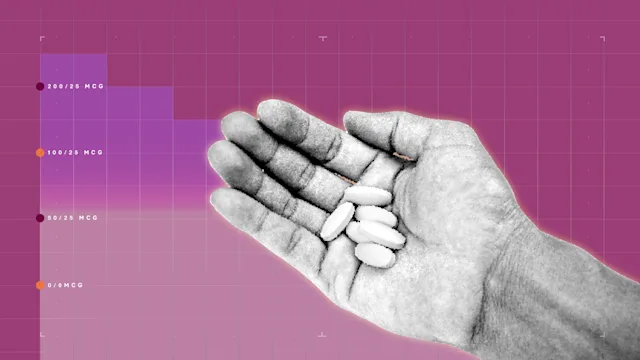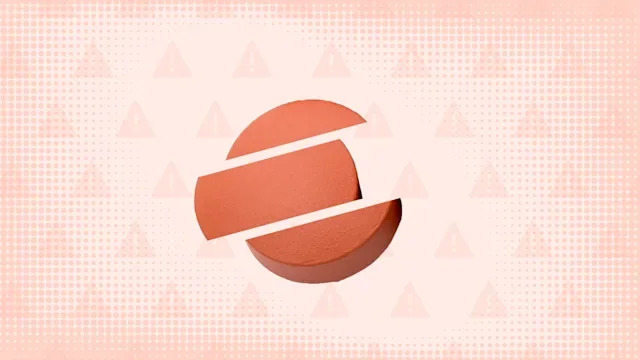Key takeaways:
Hypertrophic cardiomyopathy (HCM) is a genetic condition that causes parts of the heart wall to thicken, which can block flow of blood from the heart to the rest of the body.
Untreated HCM can cause complications like heart failure, arrhythmias, and sudden cardiac arrest.
Modern treatments such as medications, surgery, and implantable cardiac defibrillators improve survival rates in people with this condition.
Hypertrophic cardiomyopathy (HCM) is a condition where the heart muscle becomes too thick, making it harder for the heart to pump blood. You may have heard that it can cause sudden cardiac arrest in competitive athletes. HCM is one of the most common heart conditions that affects young people, and a genetic disorder often causes it.
Any heart condition can seem overwhelming or scary — especially when it affects younger people. But there are prevention and treatment strategies that can help people with HCM live a long and healthy life. Understanding the disease process is a great first step to protecting yourself and your loved ones. So read on to learn more about HCM.
What are the symptoms of hypertrophic cardiomyopathy?
Some people don't know they have HCM because they don't have symptoms. Others can develop symptoms over time. When HCM symptoms are present, they can include:
Shortness of breath
Chest pain
Fatigue
Dizziness
Palpitations
Fainting, especially after exercise or exertion
Who is most at risk for HCM?
If you have a family history of HCM, you are at higher risk of having the condition yourself. In fact, if you have a mother or father with HCM, you have a 50% chance of having it. Males and females have an equal chance of having HCM. People with high blood pressure also have a risk of a thickened heart wall, but it usually doesn't cause the same amount of blood flow issues as HCM.
Is hypertrophic cardiomyopathy life-threatening?
HCM can be life-threatening, but modern treatments make the risk of dying from HCM very low. As we mentioned, many people don’t even realize they have HCM. But HCM can cause some major complications, including:
Blood flow blockage: Blood can become blocked when leaving the heart, which can cause shortness of breath and fainting spells.
Atrial fibrillation: This is an irregular heart rhythm that can cause blood clots in the heart. Those clots can then travel to the brain and other parts of the body.
Heart failure: This occurs when the heart can’t pump enough blood to the rest of the body.
Heart valve issues: This is when the valves controlling blood flow out of the heart don’t open or close properly.
Ventricular arrhythmia: This is a life-threatening, irregular heart rhythm that causes death if not treated with a cardiac defibrillator.
What kind of tests are done for hypertrophic cardiomyopathy?
Let’s say you have a family history of HCM, or your doctor hears a murmur when listening to your heart. Don’t panic! Although the possibility of having a heart condition may seem scary, you’d be surprised at how many people can lead lives just like anyone else — even with a heart condition.
HCM can be seen on some common heart tests, like:
EKG: This is to measure the heart’s electrical activity. HCM is often first detected by abnormal waves on an ECG.
Echocardiogram: This is to look for a thickened heart muscle and obstruction of blood leaving the heart.
Cardiac MRI: This is to measure the thickness of the heart’s walls more carefully, and to look for scar tissue.
Read more like this
Explore these related articles, suggested for readers like you.
Preventive screening is a key component to HCM because it’s often passed from generation to generation. If you have a first-degree relative with HCM, the first step is usually to have a screening echocardiogram. Your provider may also give you a referral for genetic testing. You’ll see a cardiologist (heart specialist), who will discuss the next best steps.
Treatment for hypertrophic cardiomyopathy
Once you have a diagnosis of HCM, your life will likely undergo some changes. You’ll have regular checkups with a cardiologist, and you’ll likely need regular testing.
You’ll also likely need to take daily medications to manage your HCM. Medications for HCM can help in a few ways. They can:
Slow the heart rate to allow the heart to fill with blood during every heartbeat
Allow more blood to be pumped out of the heart on each heartbeat
Prevent blood clots from forming in the heart
Medications for HCM include beta blockers, calcium channel blockers, or heart rhythm drugs like disopyramide. These medications will keep your heart in a normal rhythm, and slow the heart rate so the heart can beat more efficiently.
You may need to take blood thinners like warfarin (Coumadin) or Eliquis to prevent blood clots if you also have atrial fibrillation.
If you have a more serious, life-threatening heart arrhythmia with HCM — such as ventricular fibrillation — you’ll probably need an implantable cardioverter-defibrillator (ICD).
If your HCM symptoms aren’t treated well enough with medications, you may need a minimally invasive procedure or a surgical procedure to thin the part of the heart’s muscle that obstructs blood flow. These procedures are called “alcohol septal ablation” and “septal myectomy.”
Can you live a healthy life with hypertrophic cardiomyopathy?
Yes, with the proper monitoring, many people with HCM can live into their 90s! If you have HCM, you can have a good quality of life. But be sure to check with your doctor about your exercise routine — most people with HCM should avoid competitive sports and high-intensity exercise.
The bottom line
Hypertrophic cardiomyopathy (HCM) is a condition that’s usually genetic. It can cause serious complications if you don’t know you have it — but with the right medications and care, people with HCM can carry on with their lives. But competitive sports and high-intensity exercise aren’t recommended with HCM, as they can have devastating consequences. So if you have HCM or a family history of HCM, be sure to speak with a doctor about heart testing and the safest ways for you to exercise.

Why trust our experts?


References
ACC.org. (2019). Family screening for hypertrophic cardiomyopathy.
Amano, Y., et al. (2018). Cardiac MR imaging of hypertrophic cardiomyopathy: Techniques, findings, and clinical relevance. Magnetic Resonance in Medical Sciences.
American Heart Association. (2021). Atrial fibrillation.
American Heart Association. (2021). Implantable cardioverter defibrillator (ICD).
American Heart Association. (2021). Ventricular fibrillation.
Finocchiaro, G., et al. (2020). The electrocardiogram in the diagnosis and management of patients with hypertrophic cardiomyopathy. Heart Rhythm.
Kindi, H., et al. (2018). Surgical myectomy: Rationale and personalized technique. Global Cardiology Science & Practice.
Marian, A., et al. (2017). Hypertrophic cardiomyopathy: Genetics, pathogenesis, clinical manifestations, diagnosis, and therapy. Circulation Research.
Maron, B., et al. (1995). Prevalence of hypertrophic cardiomyopathy in a general population of young adults. Circulation
Maron, B., et al. (2012). Hypertrophic cardiomyopathy with longevity to 90 years or older. American Journal of Cardiology.
Maron, B., et al. (2016). What do patients with hypertrophic cardiomyopathy die from? American Journal of Cardiology.
Mateo, J., et al. (2018). Alcohol septal ablation in hypertrophic cardiomyopathy. Global Cardiology Science & Practice.
MedlinePlus. (2020). Familial hypertrophic cardiomyopathy.
MedlinePlus. (2021). What is genetic testing?
Ommen, S., et al. (2020). 2020 AHA/ACC guideline for the diagnosis and treatment of patients with hypertrophic cardiomyopathy: A report of the American College of Cardiology/ American Heart Association Joint Committee on Clinical Practice Guidelines. JACC.
















